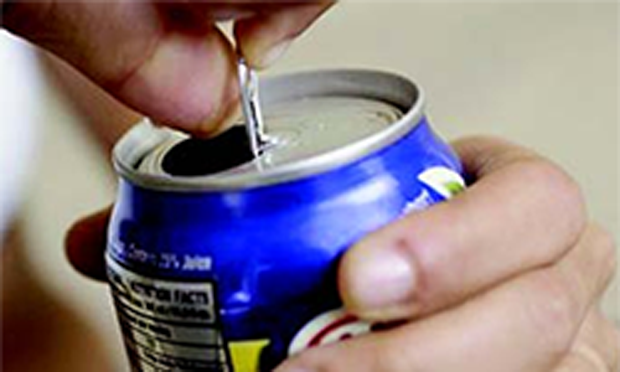Policymakers looking for ways to improve public health or create a new source of government funding have explored the idea of soda taxes – a tax on soft drinks and other sugary beverages. In January 2016, Richmond Mayor Tom Butt announced that he plans to push for a new tax on soda to help remedy the city’s budget woes. Also in early 2016, two West Virginia legislators introduced a bill that would increase the excise tax on soft drinks to generate revenue for higher education and local health departments. Meanwhile, U.S. Congresswoman Rosa DeLauro of Connecticut has continued to push bills aimed at battling obesity and diabetes nationwide by instituting a federal tax on sugar-sweetened beverages. These efforts come just a few years after the well-publicized but ultimately unsuccessful attempt by former New York City Mayor Michael Bloomberg to limit the sale of jumbo-sized sugary drinks.
Public health leaders have called for Americans to reduce the amount of sugar they consume, and soda has been targeted as a primary source of sugar. In fact, the Institute of Medicine, a division of the National Academies of Sciences, Engineering, and Medicine, has recommended “substantial and specific excise taxes on sugar-sweetened beverages” to encourage people to cut back. While such a move is politically unpopular, the U.S. government did issue updated nutritional guidelines in early 2016, including a new recommended limit on added sugar.
As various government agencies debate the benefits and consequences of taxing sugary beverages, policymakers are watching to see how a new soda tax in California affects soda prices and consumer behavior. In November 2014, Berkeley became the first city in the country to adopt a tax on beverages with added sugar, with the exception of milk, beverages created for medical use and alcoholic beverages. Voters there approved a 1-cent-per-ounce excise tax, which, unlike a sales tax, is a tax paid by beverage distributors. The tax was implemented in March 2015.
A November 2015 report published in the American Journal of Public Health offers insights into the impact of the tax during its first several months. The authors, researchers at the University of California, Berkeley and University of North Carolina, Chapel Hill, looked specifically at whether distributors responded to the new tax by increasing the price of beverages sold to retailers such as convenience stores and chain supermarkets. For the study, “Higher Retail Prices of Sugar-Sweetened Beverages 3 Months After Implementation of an Excise Tax in Berkeley, California,” the authors examined the price changes of beverages sold in Berkeley as well as in Oakland and San Francisco. They analyzed price changes by beverage, brand, size and retailer type.
Some of their key findings:
- The price of soda increased in Berkeley after the introduction of the excise tax. The price of soda rose by almost a penny an ounce — 0.69 cents per ounce — compared to the prices of soda in Oakland and San Francisco. This resulted in a distributor-to-retailer pass-through rate of 69 percent in Berkeley.
- The price of fruit-flavored beverages increased, but not as much. The price climbed almost one-half penny an ounce — 0.47 cents per ounce — compared to the prices of fruit-flavored beverages in the other two cities.
- The price increase was smallest for sweetened teas. There was a 0.32 cent-per-ounce difference.
- Of the brands that were analyzed, Coke had the highest price increase at 0.83 cents per ounce followed by Sprite at 0.73 cents per ounce, Mountain Dew at 0.68 cents per ounce and Dr Pepper at 0.56 cents per ounce.
- The price of Diet Coke rose in Berkeley compared to the other two cities. It increased by 0.32 cents per ounce.
- Drugstores in Berkeley generally had the smallest price increases, with “nonsignificant” price changes for regular and diet sodas. The prices of sugar-sweetened beverages as a whole ranged from an increase of 0.42 cents per ounce in small grocery stores to an increase of 0.97 cents per ounce in liquor stores.
- The price increase tended to be smaller for larger quantities of soda. The increased cost of 2-liter bottles and multipacks of regular soda in Berkeley were 0.46 cents per ounce higher and 0.49 cents per ounce higher, respectively, than were those in Oakland and San Francisco.
The authors note that they expect to see additional price changes. “As retailers become more aware of the tax and added costs charged by distributors, we anticipate pass-through rates will increase, especially among small grocery and liquor stores,” they state. The authors stress the need to continue to monitor the impact of the excise tax, partly to understand how and why distributors and retailers respond to it. Such information can help inform how government agencies develop and implement similar laws and policies.
Related research: A 2014 study for the National Bureau of Economic Research, “The Effect of Prices on Nutrition: Comparing the Impact of Product- and Nutrient-Specific Taxes,” offers a comparison of how different food taxes impact food choices. A 2015 study published in the American Journal of Public Health, “The Supplemental Nutrition Assistance Program, Food Insecurity, Dietary Quality, and Obesity Among U.S. Adults,” looks at how the national food stamp program affects the relationships connecting participants weight, diet quality and levels of food security.
Keywords: sugar-sweetened beverages, soda tax, Michael Bloomberg, Berkeley, soft drinks, Gatorade


Expert Commentary